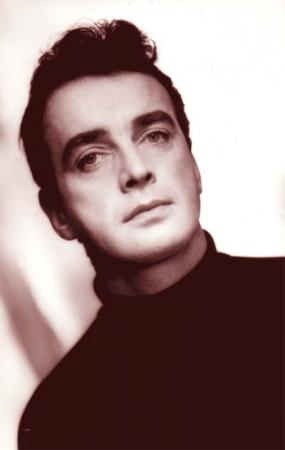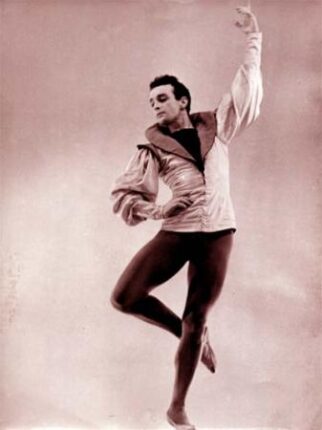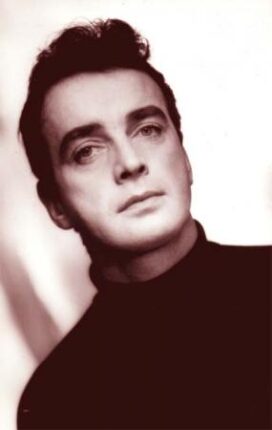Witold Gruca – dancer and choreographer born on 15 August 1927, died on 11 July 2009. In 1941–48 he was a student of private dance schools in Kraków and Drama Studio of Stary Theatre. In the season 1946/47 he worked as an actor and dancer at Ziemia Opolska Theatre in Opole; in 1948 a dancer of the Opera in Wrocław; in 1949–52 a soloist of the Opera in Poznań; in 1952–56 a soloist of the Opera in Warsaw. In 1956–61 he performed in Poland and abroad in duet with Barbara Bittnerówna. Since 1961 again a soloist of the Opera in Warsaw, than of the Teatr Wielki in Warsaw, where in the season 1967/68 he was also the ballet director. He created ballet performances; he co-created opera, drama, music theatre, stage, film, TV performances. He created around 50 choreographies, mainly with music by Polish composers. He won 1st prize of the International Dance Competition in Vercelli, Italy (1956), and 1st Level Award of the Minister of Culture and Art (1977). In 1983 he was awarded a Commander’s Cross of the Order of Polonia Restituta. On 28 September 1997 he celebrated his 70th Anniversary of Birth and 50th Anniversary of work with a special performance La fille mal gardee at the Witold Gruca Grand Theatre. He spent his last days in the House of Veteran Actors in Skolimów. In 2008 he played in a film by Jacek Bławut Jeszcze nie wieczór being a story about people living in that House.
Most important parts:
The Peacock (The peacock and the girl), Harlequin (Carnaval), Mephistopheles (Walpurgisnacht), Till (Till Eulenspiegel), Franz (Coppélia), Groom (Harnasie), soloist(Serenade), Romeo, Mercutio (Romeo and Juliet) Perlimplin (Il mantello rosso), Magistrate (The Three-Cornered Hat), Footman (Swan Lake), Apollo (Apollo and the girl), Cagliostro (Cagliostro in Warsaw), Boy (Enchanted Inn), Sancho Panza (Don Quixote), The waiting (Waiting), Hilarion (Giselle), Flute (Salmo gioioso), The King (Mandragora), Husband (Voci), Coppelius (Coppélia), Petruschka (Petruschka), The Count (Miss Juile), Widow Simone (La Fille mal gardee).
Most important choreographies:
Etudes (music by Karol Szymanowski, 1961),Wars and Sawa(music by Augustyn Bloch, 1961),Enchanted Inn (music by Antoni Szałowski, 1962),Mandragora(music by Karol Szymanowski, 1963, 1966), Love Sonnets (music by Tadeusz Baird, 1963),Waiting (music by Augustyn Bloch, 1964 and as a ballet Solitude1968, 1971),Naked Prince(music by Romuald Twardowski, 1964),Ad hominem(music by Zbigniew Wiszniewski, 1964),NokturnandTarantela(music by Karol Szymanowski, 1966),Voci(music by Augustyn Bloch, 1968, 1971),Chansons des Trouveres (music by Tadeusz Baird, 1972),Four Love Sonnets (music by Tadeusz Baird, 1972),Salmo gioioso(music by Augustyn Bloch, 1972),Pan Twardowski(music by Ludomir Różycki, 1973),Very Sleeping Beauty (music by Augustyn Bloch, 1974),Carnval (music by Robert Schumann, 1975),Symphony III(music by Tadeusz Baird, 1976),Stanisław and Anna Oświecimowie(music by Mieczysław Karłowicz, 1976),A Wedding Party at Ojców(music by Karol Kurpiński, 1976),Masquerade (music by Aram Chaczaturian, 1979),The System of Doctor Tarr and Professor Fether(music by Stefan Kisielewski, 1988).


